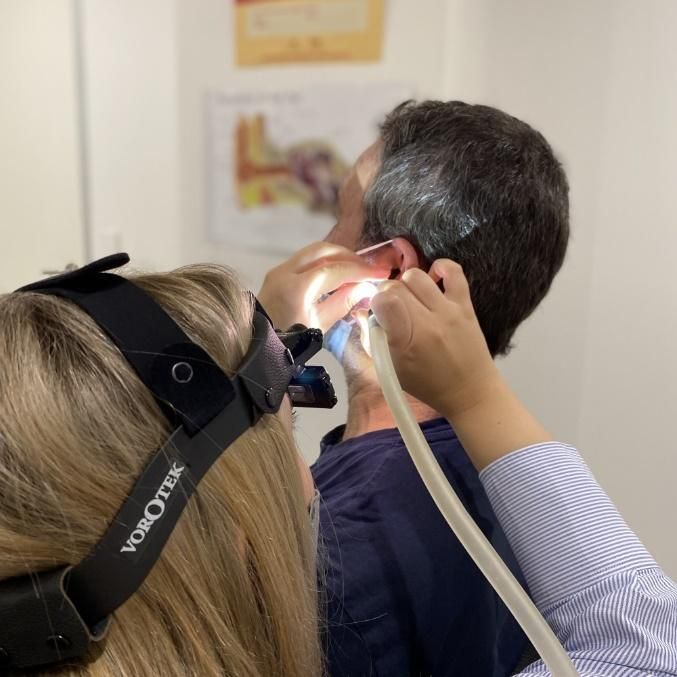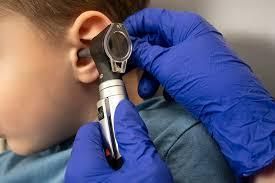The Most Common Earwax Symptoms You Shouldn’t Ignore
Earwax doesn’t get much credit. Most of the time, you don’t think about it at all until it causes trouble. But this sticky little substance is more than just an annoyance. It’s a built-in security guard for your ear, trapping dust, dirt, and bacteria before they reach deeper parts of the ear.
Usually, it takes care of itself and works its way out naturally when you chew or talk. But sometimes, that system stalls. Instead of working its way out, earwax can sometimes build up inside. When this happens, many people mistake these symptoms for something else, such as age-related hearing changes, a lingering sinus problem, or just “one of those things” you live with.
But being able to spot these symptoms early can save you from a lot of discomfort and, in some cases, prevent more serious issues.
6 Common Symptoms of Earwax Build-up
If you’ve ever wondered whether that odd feeling in your ear is worth checking, here are the most likely signs you’re dealing with more than just a little wax.
1. Muffled or Reduced Hearing
When wax blocks the ear canal, it stops sound waves from getting to your eardrum. Imagine trying to listen to music with a thick scarf wrapped around your ears; the sound is there, but it’s just dulled.
Unlike age-related hearing loss, which creeps in slowly, a wax blockage can happen overnight. And the best part? Once it’s cleared, your hearing usually snaps back to normal instantly.
2. Earache or Odd Discomfort
Not every earache means an infection. Hardened wax pressing against the walls of the ear canal can be surprisingly uncomfortable. Sometimes it’s a dull ache that comes and goes. Other times it’s sharper, especially after a swim or shower when water gets trapped behind the blockage.
If the pain is constant or severe, don’t just put up with it. Earwax might be the issue, but infections and other conditions can cause similar pain, and those need treatment too.
3. That Itch You Can’t Scratch
We all get the occasional itch inside our ear. But if you feel like you’re constantly reaching for a cotton bud, something’s off. Wax that’s dried out or stuck can irritate the sensitive skin in your ear canal, triggering the itch.
Here’s the kicker: using a cotton bud might feel like a relief, but it usually pushes the wax deeper. That makes the problem worse, not better.

4. Ringing, Buzzing, or Humming (Tinnitus)
Ever had a faint ringing in your ear that just wouldn’t stop? When wax presses on the eardrum, it can trigger tinnitus, a sound only you can hear. It might be a high-pitched whistle, a low hum, or something in between.
Tinnitus can have many causes, but if it comes out of nowhere and you’ve got other ear symptoms, clearing the wax often quiets the noise immediately.
5. A Full or Blocked Feeling
This one’s hard to explain until you’ve felt it. It’s not pain and it’s not quite pressure; instead, it feels more like the sensation of water stuck in your ear after swimming. Sometimes chewing or talking shifts it for a moment, but it always comes back.
If the feeling becomes constant, it’s usually because the wax has fully blocked the canal.
6. Dizziness or Balance Wobbles
Your ears aren’t just for hearing your body’s built-in balance system. If wax pushes against certain areas inside, it can mess with your balance.
For some, it’s just a fleeting light-headedness. For others, it can feel like the room’s spinning. And if that dizziness comes with nausea, get checked quickly just to rule out other causes.
When It’s Time to Get Help

tempted to fix the blockage yourself with cotton buds, hairpins, or even home irrigation kits. But most of these methods either push the wax further in or risk damaging your ear.
Some mild blockages clear with over-the-counter drops that soften the wax. But for stubborn or hardened build-up, it’s safer to see a professional.
Audiologists and ear-care specialists can remove wax safely using gentle suction (microsuction) or controlled warm water irrigation. Both are quick, and in many cases, you’ll feel the difference immediately.
Conclusion,
Earwax is one of those things you don’t notice until you do. Most of the time, it’s harmless and even helpful. But when it builds up, it can cause a whole list of symptoms that affect how you hear, how you feel, and even how you move.
If you’re ready to get relief and have your ears looked after by professionals, book an appointment with Ealing Hearing Centre.



